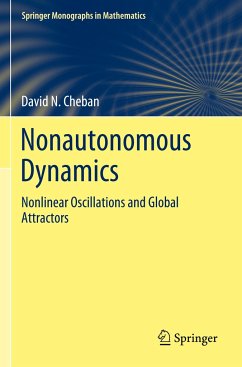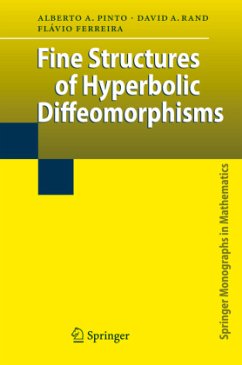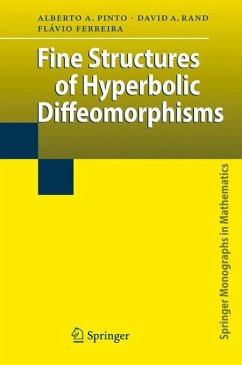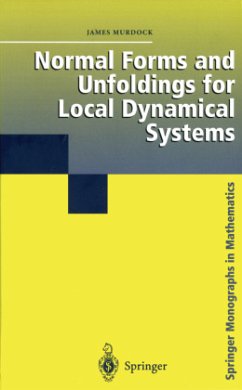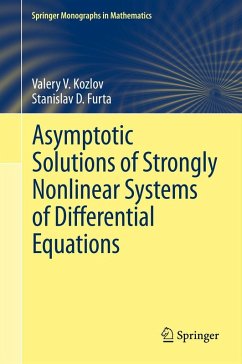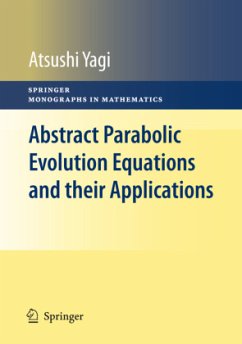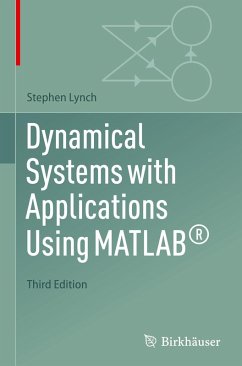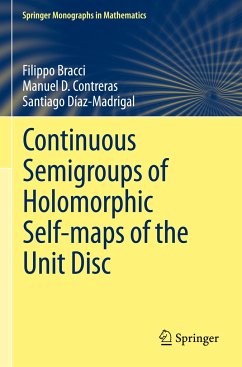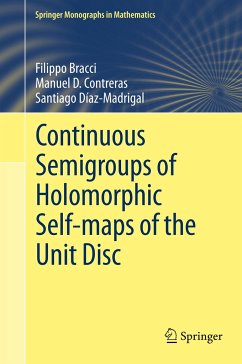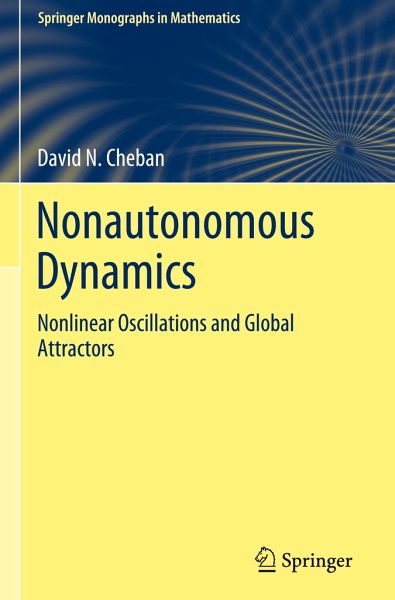
Nonautonomous Dynamics
Nonlinear Oscillations and Global Attractors
Versandkostenfrei!
Versandfertig in 6-10 Tagen
91,99 €
inkl. MwSt.
Weitere Ausgaben:

PAYBACK Punkte
46 °P sammeln!
This book emphasizes those topological methods (of dynamical systems) and theories that are useful in the study of different classes of nonautonomous evolutionary equations. The content is developed over six chapters, providing a thorough introduction to the techniques used in the Chapters III-VI described by Chapter I-II.The author gives a systematic treatment of the basic mathematical theory and constructive methods for Nonautonomous Dynamics. They show how these diverse topics are connected to other important parts of mathematics, including Topology, Functional Analysis and Qualitative Theo...
This book emphasizes those topological methods (of dynamical systems) and theories that are useful in the study of different classes of nonautonomous evolutionary equations. The content is developed over six chapters, providing a thorough introduction to the techniques used in the Chapters III-VI described by Chapter I-II.
The author gives a systematic treatment of the basic mathematical theory and constructive methods for Nonautonomous Dynamics. They show how these diverse topics are connected to other important parts of mathematics, including Topology, Functional Analysis and Qualitative Theory of Differential/Difference Equations. Throughout the book a nice balance is maintained between rigorous mathematics and applications (ordinary differential/difference equations, functional differential equations and partial difference equations).
The primary readership includes graduate and PhD students and researchers inin the field of dynamical systems and their applications (control theory, economic dynamics, mathematical theory of climate, population dynamics, oscillation theory etc).
The author gives a systematic treatment of the basic mathematical theory and constructive methods for Nonautonomous Dynamics. They show how these diverse topics are connected to other important parts of mathematics, including Topology, Functional Analysis and Qualitative Theory of Differential/Difference Equations. Throughout the book a nice balance is maintained between rigorous mathematics and applications (ordinary differential/difference equations, functional differential equations and partial difference equations).
The primary readership includes graduate and PhD students and researchers inin the field of dynamical systems and their applications (control theory, economic dynamics, mathematical theory of climate, population dynamics, oscillation theory etc).





